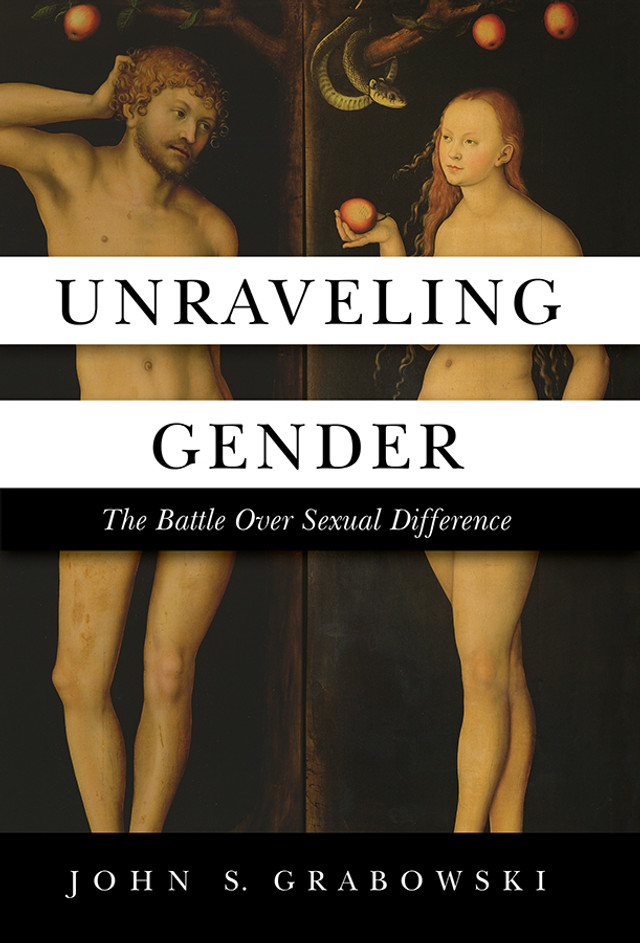August 2023
The Ordination of Women
Should women be ordained to vocational ministry? That is the question that both of the denominations with which I have been affiliated have tackled in recent months. The Christian & Missionary Alliance (with whom I was a pastor for three years) has answered that question, “Yes, with certain restrictions.” The CMA has voted to allow the ordination of women, but to restrict the role of elder to men. Because all senior pastors in the CMA must be elders, the role of senior pastor is therefore also restricted to men. The Southern Baptist Convention (to which my current church belongs) has answered with an apparent, “No,” as they recently voted to expel Saddleback Church for ordaining women. The SBC is seeking to both unify and clarify the requirements for pastors in their churches, and have resolved that pastors must be men.
This is a sensitive issue and should be treated with respect. Christians of good faith, who both hold to the authority of Scripture and other orthodox doctrines, disagree on this matter. However, the ordination of women is made more complex by our cultural history. All of the Protestant denominations which have moved to ordain women have eventually been captured by progressive ideology. (It’s also possible that the progressivism already present within the denominations pushed them to ordain women.) Whichever came first, there is a strong, historical trend of denominations that allow for the ordination of women to move away from historic, orthodox faith.
All of the Protestant denominations which have moved to ordain women have eventually been captured by progressive ideology.
Correlation, however, does not equal causation. Just because progressives have taken up the cause of women’s ordination and used it as the first step to push for unbiblical changes, does not mean that women’s ordination is itself unbiblical. The Gnostics, after all, used the doctrine of Christ’s divinity against orthodox faith and caused many early believers to fall away. It’s possible that women’s ordination is perfectly biblical, but because it bears similarities to women’s liberation and the feminist cause, it is taken up as the cause of the moment by progressives. However, the affirmation of women’s ordination can come about from a faithful reading of Scripture, and not because of a prior commitment to feminism, the Sexual Revolution, or the destruction of the so-called patriarchy. After all, the abuse of a thing does not tell against its proper use.
With that said, my personal reading of Scripture would align more closely with the CMA’s position. The CMA is wise to distinguish between pastors and elders. Not every pastor is or must be an elder, nor must every elder be a pastor. I suspect that there is some confusion on this matter.
The trouble stems from our misuse of the title “pastor.” We have turned a spiritual gift into a job title. We tack it onto nearly every staff leadership role in our churches: Student Pastor, Executive Pastor, Worship & Arts Pastor, Connections Pastor. Biblically speaking, the word “pastor” means shepherd, one who cares for the physical and spiritual needs of God’s people. Too often today, however, it simply designates the head of a certain ministry or department in a local church. That role may or may not require any actual pastoring, much less be filled by a person with a pastoral temperament or gifts.
We have turned the spiritual gift of pastor into a job title.
If we want to be faithful to the biblical text, the title “pastor” shouldn’t be considered a position of church employment at all. The pastor is one of five gift-offices given by the Holy Spirit to the Church. The other four are: apostle, prophet, evangelist, and teacher. (Ephesians 4:11) When was the last time you were at a church that used the title apostle or prophet for a ministry position? Have you ever heard of a Youth Prophet, or a Worship Apostle? That probably sounds ridiculous to you, and I think the titles Youth Pastor and Worship Pastor should sound equally absurd. Adding the word “Pastor” to every ministry head position in our churches doesn’t help us understand what a pastor actually is.
The apostles, prophets, evangelists, pastors, and teachers are people, not positions. Just because a man has the word “pastor” in his job title doesn’t make him one. And just because a woman doesn’t have the word “pastor” in her job title doesn’t mean she isn’t one. Why can a man be given the title Children’s Pastor, but a woman who does the exact same job must be called the Children’s Director? The Holy Spirit gives people as gifts to the church, and I’m not convinced that differentiating job titles between men and women honors him. There are no sex-based restrictions in Ephesians 4.
The only sex-based prohibition for ministry that we find in the New Testament is in 1 Timothy 2:12, where Paul writes, “I do not permit a woman to teach or to assume authority over a man; she must be quiet.” On the basis of this verse, it would appear that women are excluded from holding a teaching ministry within the church. In the American church context, this means that a woman cannot hold the title of Senior Pastor, Lead Pastor, or Teaching Pastor, but it does not mean that she cannot be a pastor in another area of ministry. Not all pastors teach or preach. Not all hold authority in the church.
However, this is not the only text we must consider. There are two other practical cases in the New Testament that must be part of this conversation. Acts 18 tells the story of Apollos’ arrival on the scene in the early church. He was a powerful and effective communicator of the Gospel, but he still had much to learn. In Acts 18:26 we read, “When Priscilla and Aquila heard him, they invited him to their home and explained to him the way of God more adequately.” I’m not sure how else to read this other than that a woman, Priscilla, and her husband Aquila instructed Apollos in the ways of the Gospel. In other words, Priscilla taught a man. And these two were not unknown to Paul. In fact, they were two of his closest friends.
The second text which must be a part of this conversation is found in Romans 16:1-2. Paul writes, “I commend to you our sister Phoebe, a deacon of the church in Cenchreae. I ask you to receive her in the Lord in a way worthy of his people and to give her any help she may need from you, for she has been the benefactor of many people, including me.” This is the ancient way of telling those to whom you are writing to show hospitality to the person delivering the letter. For epistles like Romans, which were long and complicated and addressed to a large group of people (possibly multiple groups that met throughout the same city), it was the job of the letter carrier to read and explain the letter. In other words, Phoebe was the first person to preach through the book of Romans.
I’m not saying that these two real-life examples undermine the teaching of 1 Timothy 2:12, but they are part of the Holy Spirit’s testimony through Scripture to the roles available to women in ministry. They must be accounted for in this conversation. (There are other important texts to consider, as well.)
Men and women are not the same, and it is reasonable to believe that not every office of the church is open to both sexes. The CMA has decided that the office of elder is available only to men, and that because lead pastors in their churches must be elders, only men can be lead pastors. I believe that a faithful case can be made for this position from Scripture.
We would do well to recognize, through ordination, the Spirit’s gifting of women to the Church.
The case that cannot be faithfully made from Scripture, at least in my opinion, is that women must be excluded from ordination. Even if we accept that only men can be elders, surely we are ordaining people to ministry positions other than elder, and there is nothing in the New Testament that would lead us to believe that women cannot fill these positions. Of the five gift-offices that the Spirit gives to the Church, only the lowest – the teacher – has any Scriptural evidence that it is sex-specific and therefore unavailable to women. (And in my view it is not a slam dunk case.) All the others – the apostles, prophets, evangelists, and pastors – can, should, and by all accounts are being filled with women by the Holy Spirit.
In my view, we would do well to recognize, through ordination, the Spirit’s gifting of women to the Church. What is ordination, after all, if it is not the acknowledgement by the church of the Spirit’s call upon an individual to be his gift to that church? Let us, therefore, keep in step with the Spirit. And let us also reconsider our language. Rather than using the word “Pastor” in every job title of significance in our churches, we should use something that is both more accurate and more biblical, like deacon/deaconess.

What I’m Reading
Unraveling Gender by John Grabowski

Everything old is new again. What goes around comes around. Or, as Solomon put it, “What has been will be again, what has been done will be done again; there is nothing new under the sun.” My son loves classic rock. My daughters wear the same fashions my wife wore at their age. Every popular movie is a remake of an old classic.
Humans have a tendency to recycle ideas. In his book Unraveling Gender, John Grabowski makes the case that this is precisely what is happening with modern gender theory. “Gender ideology is best understood as a modern expression of Gnosticism, the ancient heresy that opposes Christian conceptions of creation, the Incarnation, the body, and sexual difference.” (9) Gnosticism was the first major threat to Christianity (other than persecution), and the seeds of it were already being sown before all of the original disciples were dead. In its simplest form, Gnosticism taught that everything material was evil and everything spiritual was good. A human being was a good spirit trapped inside of an evil body, and salvation came through special knowledge (gnosis in Greek, hence gnosticism) that allowed a person to transcend his bodily prison. Gnosticism was considered a Christian heresy because it denied the Incarnation of Christ. In Gnostic teaching, Christ could not have been human because, being perfect, he would not have allowed himself to be imprisoned inside of evil flesh. The implications of this are many, and are beyond the scope of this book review.
If you replace spirit with gender, the parallels between ancient Gnosticism and modern gender theory start to become apparent. In gender theory, there is a clear delineation between a person’s body and their gender, their exterior presentation and their interior contemplation. Gender need not correlate to sex. It is completely independent of the body, while at the same time represents the truest part of a person. For gender theorists, gender carries the same moral weight as the spirit did for the Gnostics. If one’s gender and body do not match, it is the body – the external – that is wrong and must be brought into alignment with the gender – the internal.
Gnosticism was a heresy because it denied certain important doctrines, namely the Incarnation of the Son of God. Though it did not arrive within the Church, gender theory functions in the same way as Gnosticism because it pits a person’s body against his spirit. There is no such division in Christianity. Gender theory is fundamentally anti-Christian because it works “to undermine the goodness of the human body, the reality of sexual difference, the distinctive gifts of men and women, sexual complementarity, the connection between marriage and the gift of children, and the irreplaceable nature of the family as the basis of a healthy human society.” (17) Gender theory is not, as it would appear, a compassionate answer for troubled souls. Instead, it is a world-destroying and socially-destabilizing force that sows confusion and doubt. Like the Gnosticism that it represents, gender theory creates a dualism (good versus evil) within the human body where God intends for there to be unity.
Drawing on Catholic teaching, Grabowski ably defends the Christian vision of sex and gender, and gives his readers a way forward through the chaos. Our human bodies and our interior worlds are mysterious to us. It is strange that we are so strange to ourselves, but this is not a modern discovery. The ancients knew of this mystery long ago. The sexual difference of the human race is a glorious gift, even if after thousands of years and billions of people we still do not fully understand it. The sexual difference of male and female, manifested in our various bodies, is what makes our existence possible. In Christianity, our sexual bodies are good – not just good, but very good according to Genesis 1. They are also the only means by which we can obey God’s first command: Be fruitful and multiply. Our bodies are not a problem to be solved through medical interventions so that they come into alignment with our sense of gender. Rather, they are the means through which we obey God and manifest his presence into the world, imitating his first act of creation through our acts of procreation.
My personal take on Unraveling Gender is that this is a good primer for understanding the Christian perspective on sexual difference and the problem of gender theory. The number of books in this space is growing, which is a good thing, and Unraveling Gender stands out because the author brings the weight of Catholic tradition into the conversation. As an evangelical Protestant, I appreciate the exposure to the teaching of popes and other Catholic teachers that I may not find in the literature from my own tradition. This is a good book that brings truth to one of the weightiest issues of our time.

Before I Forget
We’re still releasing Morning Devotions videos three days a week. These videos are all about ten minutes long, and they’re extremely chill, for lack of a better word. This is intentional, as they are both recorded in, and intended to be watched during, the early morning hours. They’ll be hard to watch in the middle of the day, but my hope is that they’ll be just the right speed for when you first wake up. The idea is that these will serve as either a supplement to your current devotions or as a motivation to do your own. We are also hoping to get more people involved in doing them. If you’d like to submit a video, check out the video submission instructions here.
I am currently working on a new series called Double Entendre, in which we will examine the ways in which the same word means different things in Christianity and Wokeness. The first entry is love, which is a very confusing word as it is. I am hoping to get this article posted sometime in August.




POST COMMENT